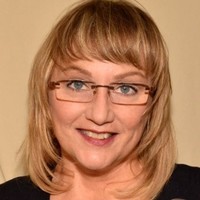
Training Day II
Proposal Tricks and TreatsDon’t let the proposal ghouls and goblins catch up with you. Shake the cobwebs off your old bones and rise from your proposal tomb for a monster of an educational opportunity.
The APMP SOCAL Chapter held its 2nd Annual Training Day from 8:00am to 5:00pm on Friday, October 21, 2005 at SM&A's Training Facility in Newport Beach, California.
Using the Critical Path Method to Schedule Your Proposal Project
Large proposal efforts require a number of parallel work efforts to ensure that you submit a winning proposal. Often such efforts include operational and management work that goes beyond the proposal itself. Without carefully planning and scheduling this work, proposal development is at risk because critical elements will be missing or incomplete. By using formal techniques from project management, you can lower this risk. David will use healthcare proposal development examples to illustrate key elements in planning, creating a work breakdown structure and schedules, and using critical path method (CPM) scheduling techniques. Complex proposal schedules will be reviewed and analogies between industries will be drawn.
David C. Kumpf
David Kumpf is the President and Founder of Optimetra, Inc. and is a key consultant for the firm, focusing on healthcare business capture, including RFP analysis, proposal strategy development, and project management. Prior to founding Optimetra, Dave held positions as Director of Process Engineering and Director of Business Projects at Foundation Health Systems, Inc. He was also President and Co-Founder of Lexicon Systems, Inc., a consulting firm that focused on engagements in information development, software engineering, and project management for healthcare and IT industries. David is a certified Project Manager (PMP) and active member of the PMI Healthcare Specific Interest Group.Winning Work at JPL: Proposal Development from a Systems Perspective
Jet Proposal Laboratory is responding to NASA’s mandate by expanding its partnerships with industry and academia and by developing technology opportunities in both aerospace and non-aerospace sectors. Based on interviews with leaders in JPL’s Acquisition Division, this presentation describes how to find subcontract opportunities with JPL and help your proposal lead the pack. Lisa will present basic facts about JPL and its mission; JPL’s acquisition and Federal Acquisition Regulations; typical players and sequence of events in large acquisitions (where expected contract amounts exceed $50 million); proposal do’s and don’ts from the JPL reviewers’ perspective; and information resources for large and small prospective vendors.
Lisa Priester
From her beginnings as a radar data analyst to her current position as an information designer/manager for the Jet Propulsion Laboratory, Lisa Priester has specialized in “remembering the humans” while developing information products for the aerospace, architecture, and engineering markets. In her work as a proposal specialist, she supported proposals for up to $700M—including the University of Arizona’s and JPL’s successful Phoenix mission proposal to NASA. With a bachelor’s degree in mathematics from the University of Southern California, Lisa over 20 years of technical and documentation experience. She also holds a Certificate in Technical Communication from UCLA Extension and is a certified Configuration Management II professional.Proposal Pricing
The pricing portions of government proposals are highly regulated and often confusing. Jack Paul will present information on effective use of FAR in competitive and sole source negotiations, consistency of pricing with technical and management proposals, projecting cost contingencies, and the impact of Cost Accounting Standards on estimating, pricing, financial analysis, and accounting. Additionally, information about ethics and standards of conduct for pricing proposals, compliance with Truth in Negotiations Act (TINA) and exemptions will be discussed. Jack will finish with a Halloween quiz on TINA and unintended consequences in bargaining for Government contracts and subcontracts.Jack Paul
As President of Federal Procurement Conferences, Inc., Jack provides public sessions and in-house courses for over 50 companies and Government agencies. He taught Government Contracts at UCLA Law School and served as a legal officer in procurement at Headquarters Air Materiel Command, USAF. An author of book on Government contracts for American Bar Association, Jack is a graduate of UCLA (A.B., Phi Beta Kappa), Stanford (LL.B., Stanford Law Review Editor), and Harvard (LL.M.)An Analytical Look at Storyboarding Best Practices
There is little doubt that the use of storyboarding is a proposal development best practice. Storyboarding identifies and shapes topics that present the organization and its products favorably to the customer while still adhering to procurement requirements. Within the proposal development community, there are many different approaches to the storyboarding process. Presenting several different approaches to storyboarding, Mark will discuss some of the philosophical underpinnings, strengths, weaknesses, features and benefits of each—including what might be considered the best available in a particular context. Variables that determine the effectiveness, cost, time to perform, personnel resources required, training, and ease of use will also be addressed.
Mark Grinyer
In the proposal development field for over 25 years, Mark has played significant roles developing proposals ranging in value from a few hundred thousand to several billion dollars; provided Capture and Proposal development services; managed a corporate proposal development center; and supported Hughes Aircraft Co. and Raytheon to provide products and services to customers around the world. Currently Mark is a Consulting Proposal Analyst working for Raytheon’s Space and Airborne Systems (SAS) Capture/Proposal Center in El Segundo, CA. A member of the APMP’s Acquisition Reform Task Force, Mark is on the Board of APMP's SOCAL Chapter. Mark has a PhD in English from the University of California, Riverside (UCR).Price To Win – INTEL Pricing – Trick or Treat?
Do you ever feel like pricing much like the Halloween game of bobbing for the one good apple in a tub full of bad apples? Too frequently companies believe that the “price to win” is the sum of the fully loaded “bottoms-up” estimates arbitrarily cut to match the "secret number" from marketing. In reality, a more analysis-driven approach is needed to evaluate the customer’s budget/spending habits, the most-likely competitive bids, and your own internal estimates/pricing process. The Trick is to analyze the customer and competition while preparing an internal price that provides the Treat—the good apple.
David Murphy
David is Senior Associate at Shipley Associates and has over 25 years in proposal writing, business development, and system development with BDM Corporation, Martin Marietta, Lockheed Martin, and Sybase. He specializes in Cost Volumes, Price To Win analysis, Earned Value Management, CAIV, and IMP/IMS/WBS/BOEs. A 1976 graduate of the University of Maryland, he created a Project Management Risk Assessment, Identification, and Management tool while at Sybase. He has extensive experience in system/software development process, system/software test and evaluation, risk assessments/risk management, and quality assurance.Consultant Proposal Evaluations in the Health Care Industry
Mercer Human Resource Consulting thoroughly reviews and analyzes proposals to verify that clients’ goals and objectives will be achieved. During the comprehensive assessment of vendors, Mercer consultants and analysts confirm that client-specific issues are addressed in proposal responses. Kristine and Melanie will provide insight to the proposal evaluation process Mercer consultants and analysts use to review proposal submissions and includes a discussion of: completeness of responses, attention to detail, adherence in providing requested information, and identification of key vendor differentiators. The floor will then be open to questions regarding the proposal evaluation process. Attendees will have a better understanding of how proposals are evaluated by one consulting organization and how they might better assist their organizations in responding successfully.
Kristine Dopera
Joining Mercer Human Resource Consulting in 2002, Kristine is a consultant in the Newport Beach office with 21 years of consulting benefits experience. Before joining Mercer, she managed the delivery of health plan management services to four national, multi-state Fortune 500 clients. Kristine evaluated several Health and Welfare vendor marketing proposal. She recently conducted a comprehensive vendor assessment for a national client that wished to outsource claims administration and benefits administration. Kristine received her Bachelor of Science degree from Pennsylvania State University and an MBA from St. Joseph’s University in Philadelphia, PA. She has achieved the specialty designation of Group Benefits Associate (GBA).
